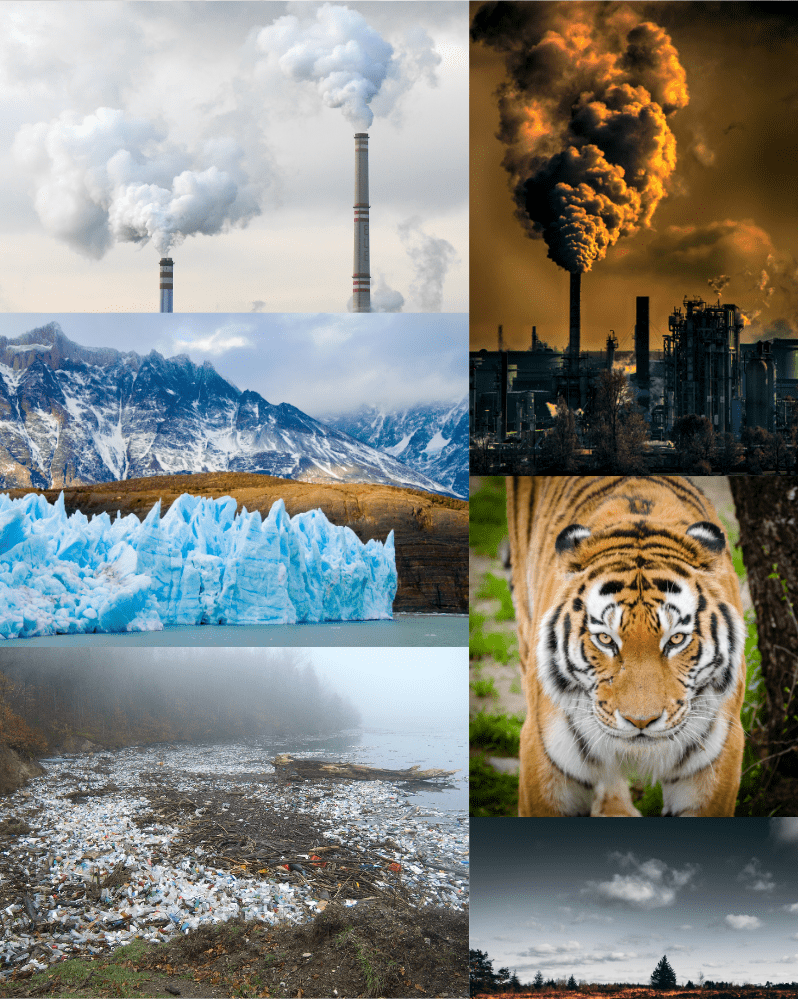Hey everyone, it’s good to see you all again!
As mentioned in my previous post, I realised that a few of the people I spoke to were oblivious to the importance of glaciers. Therefore, I decided to do a quick investigation to find out what peoples’ perceptions of various environmental issues were! I made a google form and sent them to various groups of people. They were my peers from different courses of study (none from BES), as well as family members and my dad’s colleagues who were unaware of this blog. Here’s a quick breakdown from the 42 respondents.
84.6% of people listed the urgency of our environmental problems as urgent (4-5 on a scale of 1-5)
Individually, I listed 6 different environmental issues. Namely
- Plastic pollution in oceans
- Air pollution
- Glacial melting
- Land degradation
- Loss of biodiversity
- Overconsumption of non-renewable energy.
I asked for participants to rate their thoughts on the urgency of each issue and this is what I found: For the percentage of people rating the urgency of each issue as urgent –

However, what’s interesting was the response I received when participants were told to rank the aforementioned issues by their perceptions of the urgency/importance of these issues on a scale of 1 to 6 (with 1 being the most urgent and 6 being least urgent).

I took the average ranking of each issue and this is what I got:
Plastic pollution – 2.17
Air pollution – 2.24
Glacial melting – 2.71
Overconsumption of non-renewable energy – 2.88
Land degradation – 2.93
Loss of biodiversity – 3.17
This was contrary to what I expected, as from my conversations with people around me, I had expected the awareness around glacial melting to be lower. However, it seems from my findings that glacial melting has the most people (57.1%) listing it as being very urgent.
Despite that, people still ranked plastic pollution in seas and air pollution above glacial melting when it came to urgency/importance! This makes me think that the distinction between peoples’ perspectives of the different environmental issues becomes clearer when people are made to compare them in this manner. Of course, these results are not representative of the general population as the sample size is tiny, but it does give us some interesting insight.
In Singapore, where we are not physically close to the problem of melting glaciers, I had expected less awareness of the issue. Media coverage of environmental issues has also been found to be lacking here, where a study has found that the reporting of scientists’ and activists’ opinions is significantly lower in Singapore than in other countries due to The Straits Times drawing information mostly from official sources. However, in this day and age of social media where information is easily accessible and so abundant, perhaps such information can transcend the physical and societal boundaries that such problems used to face in the past.
My findings showed that people are aware of the different environmental issues, but does this awareness translate to action? That is an aspect that I find problematic to quantify as it encompasses many factors. I think that the different environmental issues are part of a gargantuan problem, and sadly, fixing one requires fixing everything.
In my next post, I shall explore the importance of glaciers to wildlife. See you!
Clive
